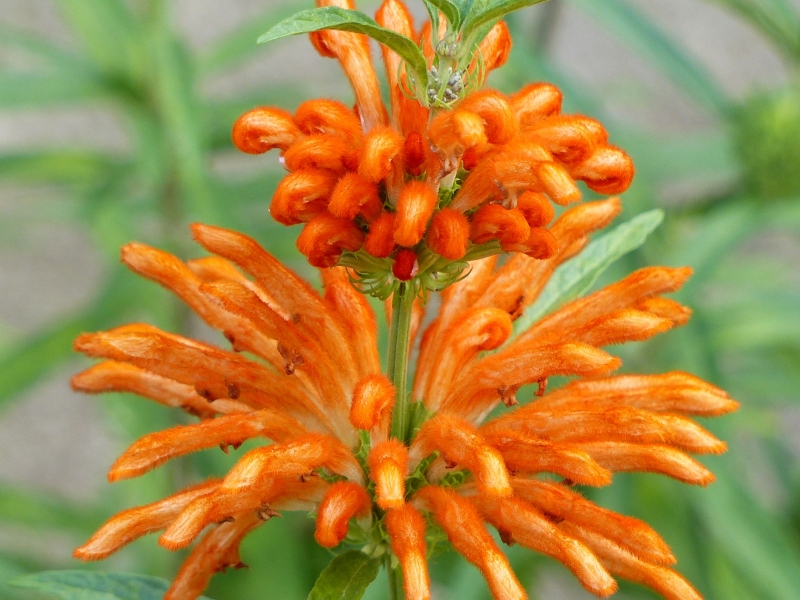

Unusual semi-deciduous perennial bush with rapid growth and expansive habit, belonging to the Lauriaceae family and native to South Africa, capable of reaching a minimum height of 1.5 m and almost the same width. Numerous erect, herbaceous stems with a typical quadrangular section rise from the woody and branched base, from which dark green leaflets, lanceolate and opposite, with slightly serrated margins come off. From the end of summer and until the first cold, the branches stretch quickly and are crowned by showy inflorescences formed by tubular flowers of a beautiful shade of orange arranged radially around a node of the stem and on several superimposed planes: slightly hairy , they can remember the tail of a lion, from which derives both the specific name and the popular one with which the plant is remembered.
The staff of Vivai Capitanio has his own catalogue with all the plants in the store and that grows in our greenhouse. Use this button to download the latest version.
PAper catalogue is available only for professionals. Fill the form to receive it by post: